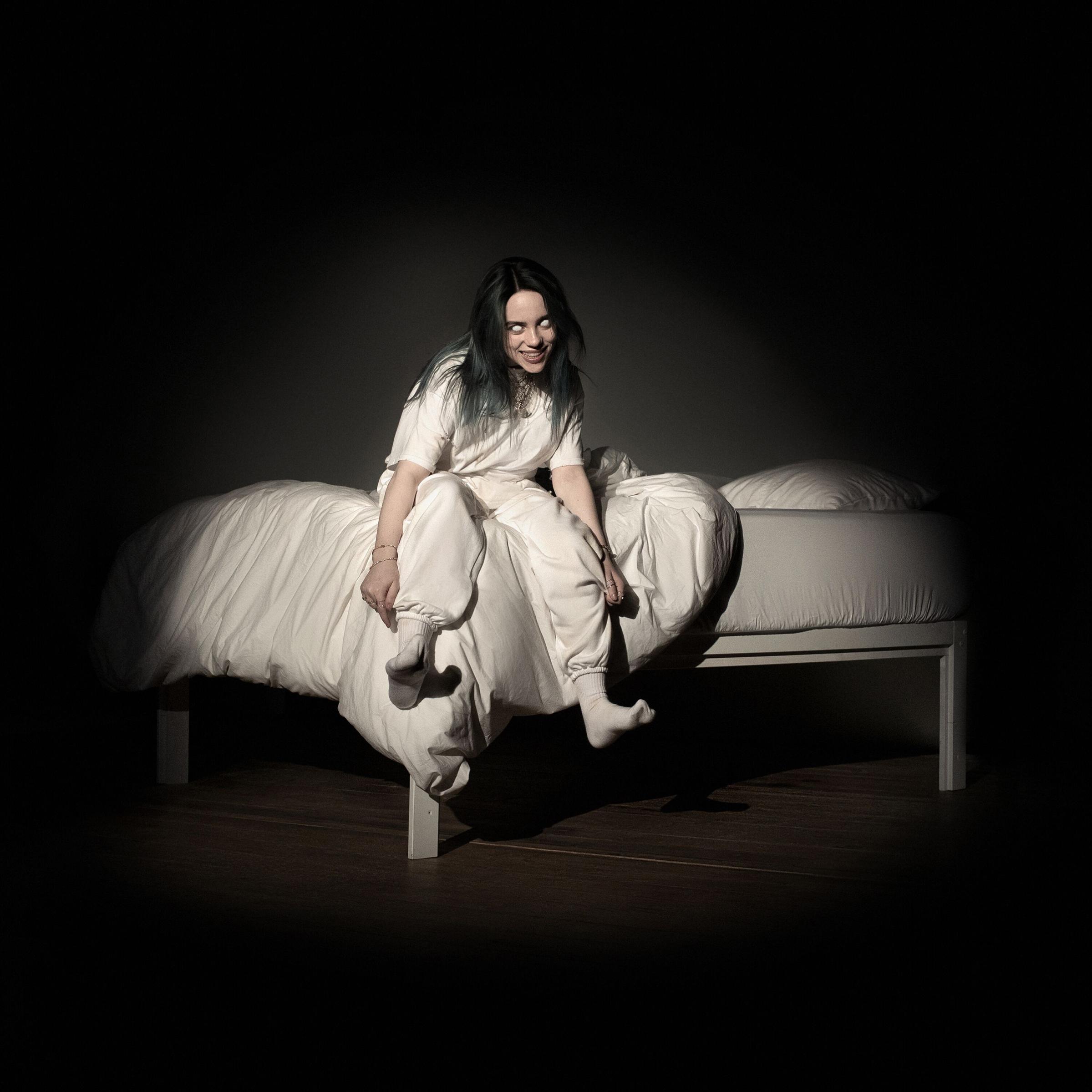
The party had an open bar, but Billie Eilish was nowhere near the free champagne. At 17, the evening’s star and musical guest was a good 10 years younger than most of the hip Manhattan crowd filling the cavernous Lower East Side gallery on a February night. The occasion? The launch of her magazine cover for Garage, created by the renowned artist Takashi Murakami.
Eilish, a singer-songwriter beloved by Gen Z–she has 15 million Instagram followers–is not yet a household name. But with her debut album, When We All Fall Asleep, Where Do We Go?, out March 29, she’s well on her way. Even before its release, she has nearly 6 billion streams across platforms and is Spotify’s second most popular female artist this year. And she got there on the strength of an image that’s equal parts enigmatic and open, and music that swings from eerie trap-pop to whisper-sweet balladry, all wrapped up in existential pain. Her refusal to conform makes her a voice of a generation that desires authenticity above all. “I don’t care what you don’t like about me,” she says. “I care what I have to say.”
Eilish–full name Billie Eilish Pirate Baird O’Connell–was raised in Los Angeles. Her actor parents homeschooled her and her older brother and co-writer Finneas. By 8, she was in the Los Angeles Children’s Chorus and practicing contemporary dance. At 14, she recorded the vocals for one of her brother’s songs, which they uploaded to Soundcloud. The warbling “Ocean Eyes” became a viral hit. “It was almost like a light bulb,” says Darkroom Records head Justin Lubliner of hearing the song, which prompted him to help sign Eilish to his label as well as Interscope. In the three years since, she has built up a passionate online following, posting streaming numbers higher than Lady Gaga’s in 2019. On Billboard‘s Social 50 chart, she’s bested only by K-pop megagroups, One Direction’s Louis Tomlinson and Ariana Grande.

Part of Eilish’s appeal as a Gen Z star is her attitude. In her music, she dwells on the macabre, from the strange fantasy of “Bellyache”–in which she sings from the perspective of a murderer–to the dark imagery of “Bury a Friend,” which conjures a monster under her bed. In interviews and online, Eilish is frank when discussing her Tourette’s syndrome and social issues she supports. Coming of age in a decade that can feel apocalyptic, she is attuned to the concept of a future on the brink. “I really care about the world, and global warming, and animals, and how everything is ending and I feel like nobody’s really realizing it,” she says.
That anxiety contrasts with her too-cool-for-school image: she favors androgynous, oversize athletic apparel and a tangle of heavy chains. Her debut EP was titled Don’t Smile at Me. Her team says the synesthetic Eilish calls the shots, from her avant-garde video concepts to tour merchandise. In one video, she cries black tears. In another, disembodied hands stab her with syringes. Britney Spears performed with a snake, but Eilish had tarantulas crawl on her face for the sake of art.
The visuals may feel opaque, but the music is arresting. In Eilish, Lubliner sees the sophistication of a seasoned artist with the emotional fervor of a teen. Dave Grohl of the Foo Fighters likened her allure to that of his old band, Nirvana. Like that group and her other influences–the Strokes; Tyler, the Creator; Linkin Park–Eilish is confident in her idiosyncrasy and unbothered by public perception. “I’m fine with exactly who I am, doing exactly what I’m doing,” she says. No need to bend to norms of femininity or glossy stardom.
Back at the party, while Murakami mingled, Eilish stayed hidden in a makeshift greenroom before taking the stage for a short acoustic set. On the tender ballad “When the Party’s Over,” she kept her eyes closed as if in a trance, then thanked her hosts and collaborators and disappeared. She did not stick around to rub shoulders. She didn’t need to.
More Must-Reads from TIME
- Cybersecurity Experts Are Sounding the Alarm on DOGE
- Meet the 2025 Women of the Year
- The Harsh Truth About Disability Inclusion
- Why Do More Young Adults Have Cancer?
- Colman Domingo Leads With Radical Love
- How to Get Better at Doing Things Alone
- Michelle Zauner Stares Down the Darkness
Write to Raisa Bruner at raisa.bruner@time.com